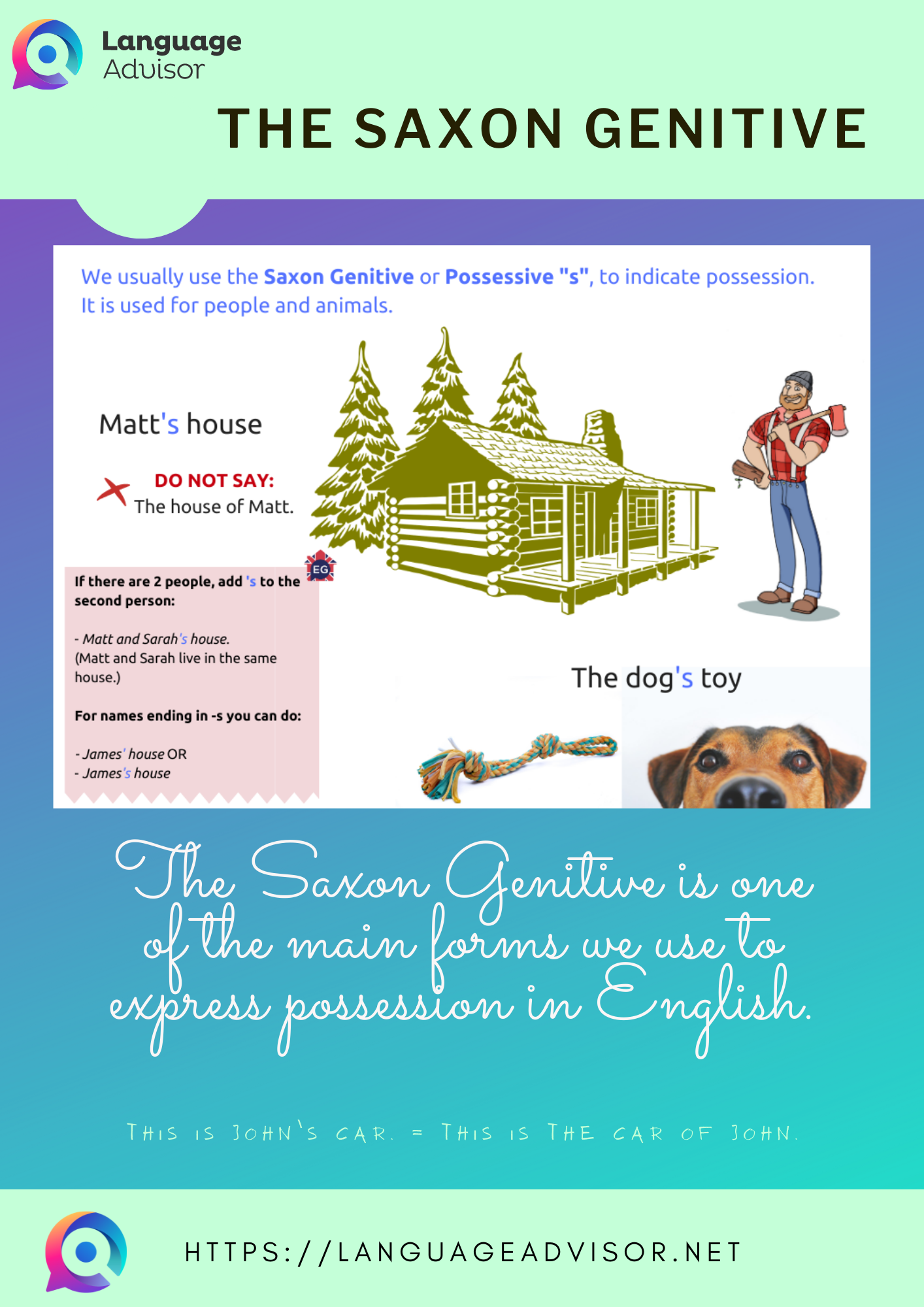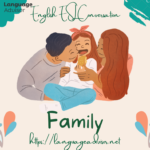The Saxon Genitive and Family. English grammar with exercises. English ESL Worksheet and picture dictionary. Free eBook and Free printable PDF
The Saxon Genitive and Family
The Saxon Genitive and Family
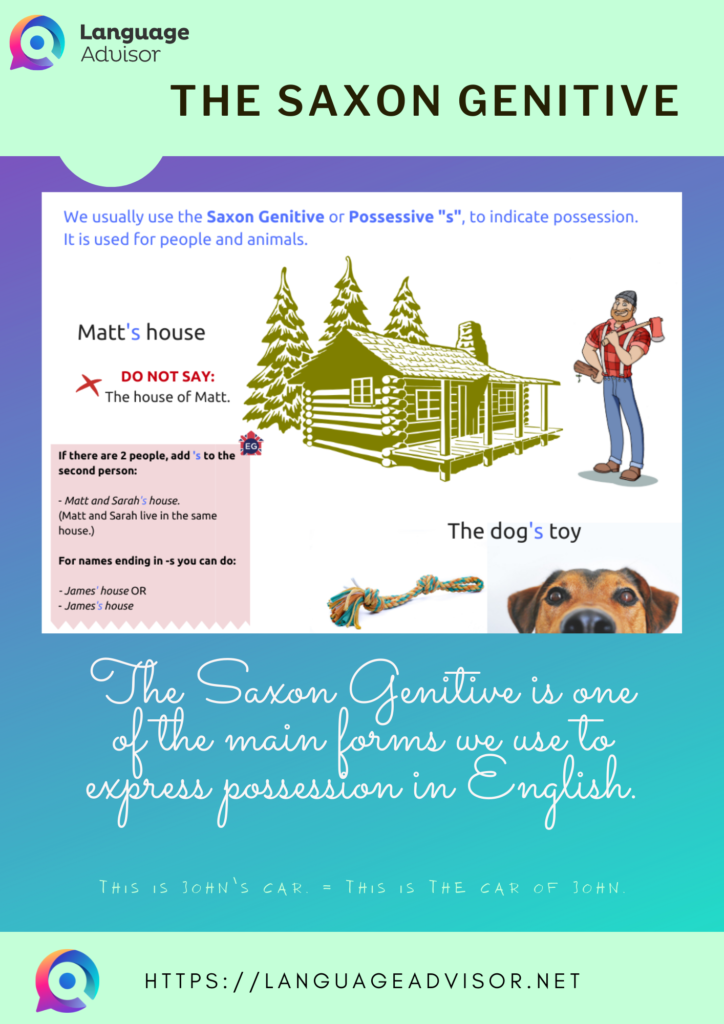
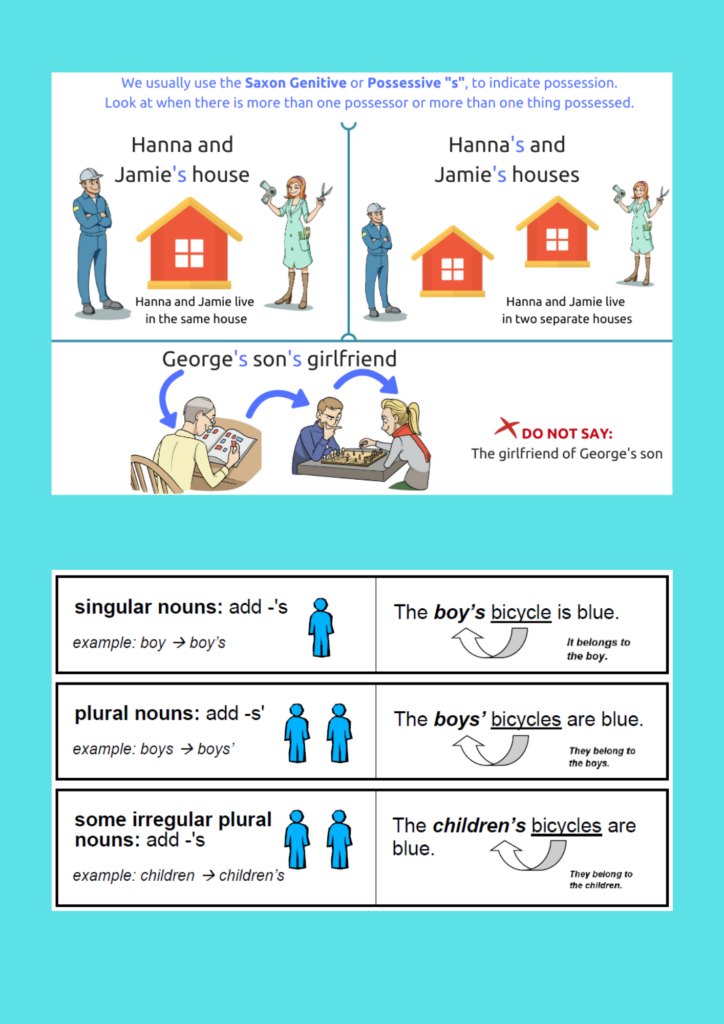

The Saxon Genitive and Family
The Saxon Genitive is one of the main forms we use to express possession in English.
The Saxon Genitive substitutes the word ‘of’ to show possession. It’s used mainly to refer to things owned by people, but it can also be used with animals, organizations and even some time expressions. To create the saxon genitive we add ‘s to a name. For example:
This is John’s car. = This is the car of John.
(name + ‘s + noun)
When it is clear what object you are referring to, it is also possible to simply use the name + ‘s. For example:
Is that Maria’s bag? – No, it’s Chiara’s
The Saxon Genitive with plurals
When we use the saxon genitive with a plural noun, such as ‘parents’, we just add an apostrophe ‘. For example:
My parents’ house. = the house of my parents.
Names ending in ‘s’
When a name ends in -s, like James, we can either use the normal ‘s structure (which is more common in modern English) or only add an apostrophe. If we add ‘s we need to add a syllable /iz/ to the pronunciation. For example:
That’s James’s drawing. OR That’s James’ drawing.
Using the Saxon Genitive for Time Expressions
When we refer to a particular time (in the present, past or future), it’s possible to use the saxon genitive. For example:
Today’s news.
Last week’s meeting.
When not to use the Saxon Genitive
We don’t normally use the saxon genitive with objects. In this case we prefer ‘of’. For example:
The door of the house. (NOT ‘The house’s door’.)
The lid of the pen. (NOT ‘The pen’s lid’.)
The end of the road. (NOT ‘The road’s end’.)
In order to practise Genitive Saxon, students have to learn the names of the family.
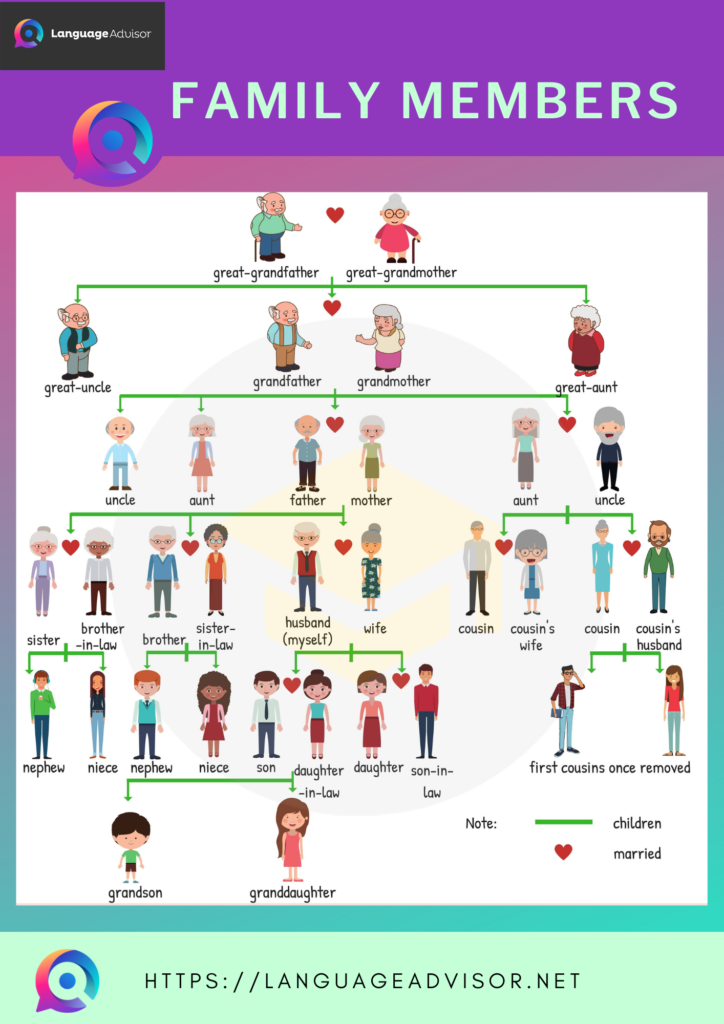
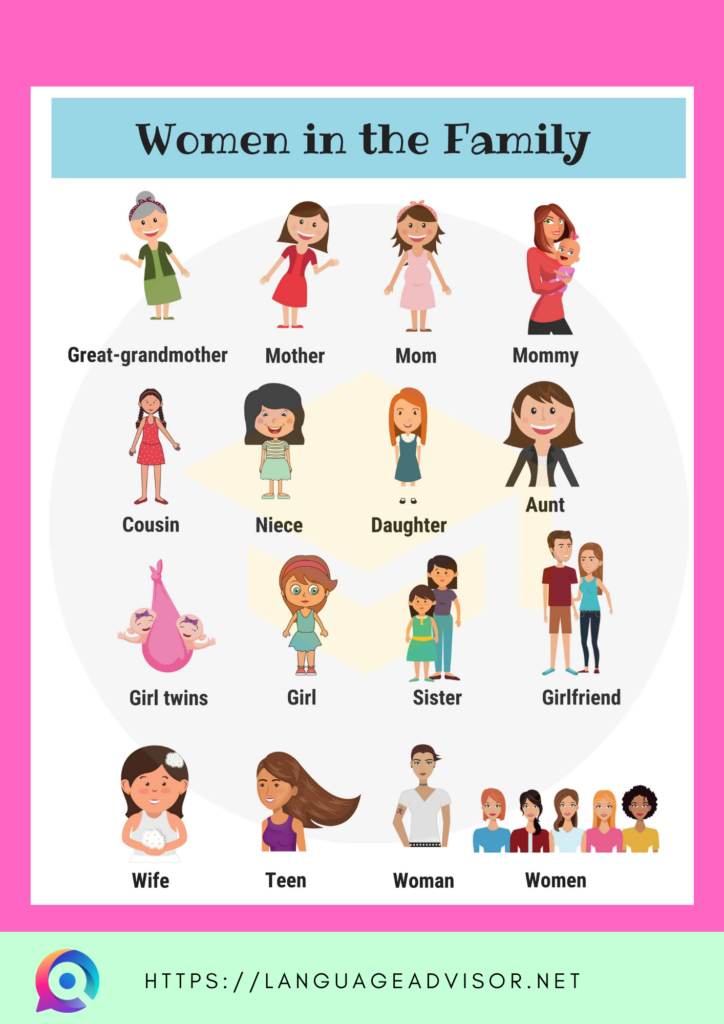
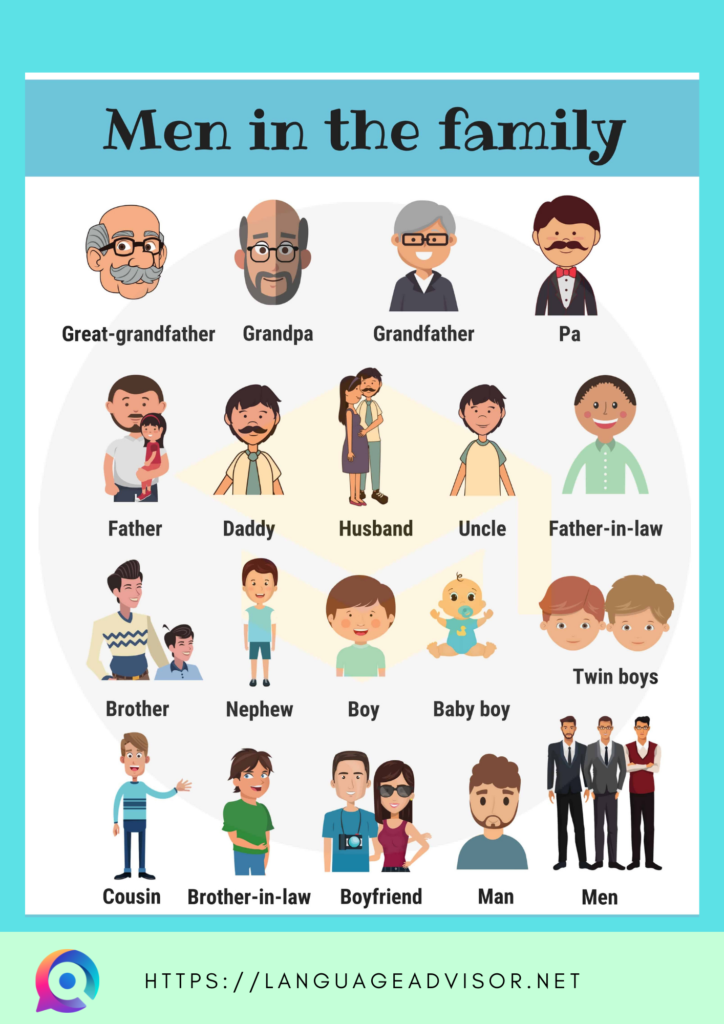

The Saxon Genitive and Family: exercises
EXERCISE
Write phrases using the prompts
e.g. These / be / Tom / gloves
These are Tom’s gloves
Bob / girlfriend / be / very / nice.
This / not / Tom / book.
I / always / play / tennis / with / Marcus / parents.
My brothers / teacher / give / them / lots of / homework.
The children / toys / be / on / the table.
Joy / flat / be / very / big.
James / sister / have / Italian / name
Helen / car / be / red.
I / always / use / my brother / clothes.
Paul / friends / have /
EXERCISE 2
Answer the questions using the prompts.
e.g. What is this? John / computer
This is John’s computer.
What is this? James / telephone number
What are those? Jane and Sue/apples
What is that? Ian / watch
What is this? Meg / map
What are those? My friends / cars
What are these? Peter/keys
SAXON GENITIVE & FAMILIES
EXERCISE 3
Match the two parts of the sentences:
My aunt is my father’s mother
My grandmother is my uncle’s children
My cousins are my mother’s daughter
My sister is my mother’s sister
My uncle is my father’s brother
EXERCISE 4
Fill in the gaps of the conversation with the words underneath.
A:-It’s my aunt’s birthday today.
B:-How old is she?
A:-She’s 45 years old.
B:-Does she have children?
A:-Yes, she has two children. They are my ________.
B:-Is you aunt your __________’s sister or your __________’s sister?
A:-No, my uncle is my mother’s ___________.
B:-Oh, how complicated! I don’t have aunts, uncles, or cousins.
A:-Do you have grandparents?
B:-Yes, all four. I have two _________________ and two _________________.
EXERCISE 5
Fill in the gaps with this, that, these and those:
John: Are these people your friends?
Katy: Yes, and my family. ________ is my mother here, in the middle, and ________ are my grandparents on the left.
Katy: And_______ little girl in the middle?
John: She’s my niece.
Katy: Ah, your brother has a daughter now?
John: Yes. _________’s him there on right.
Katy: It’s a lovely photo!

All downloads are in PDF format
The Saxon Genitive and Family exercises: eBook and PDF
BROWSE THE EBOOK ONLINE OR DOWNLOAD THE PDF FOR FREE



